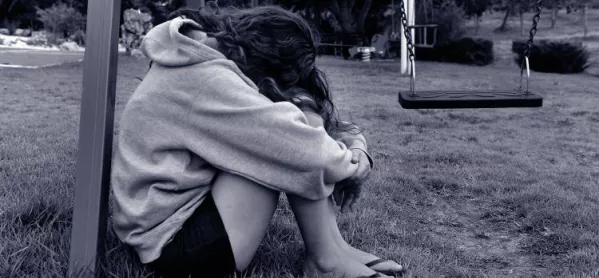- Home
- Exclusive: Shock at Ofsted chief’s ‘lack of knowledge’ of peer abuse guidance
Exclusive: Shock at Ofsted chief’s ‘lack of knowledge’ of peer abuse guidance

Campaigners against sexual violence have said they are “shocked” and “disappointed” at the Ofsted chief inspector’s “lack of knowledge” about how schools should deal with alleged pupil on pupil sexual abuse.
Appearing in front of the House of Commons Education Select Committee yesterday, Amanda Spielman suggested that schools should not automatically separate pupils if one alleged they had been raped by the other outside of school.
Her comments contradict statutory guidance published by the Department for Education in December 2017, which makes clear that schools should not allow victims of sexual violence to remain in the same classes as their alleged attackers.
One mother of a teenager who was forced to return to the classroom with her alleged attacker, said she was “shocked” by Ms Spielman’s comments and questioned whether she was “fit to be chief inspector”.
Background: Schools under fire for putting rape victims in classroom with attackers
Read: Ofsted ‘ignored failures to protect rape victims’
Investigation: Who keeps our pupils safe?
Yesterday, the Labour MP Emma Hardy put a scenario about a young person being sexually attacked outside of school to Ms Spielman.
Ms Hardy said: “If you have a situation, for example two 15 year olds - something had happened at a party and one of the children had been raped. Would you expect those children both to be placed in the same class by the school the next week?”.
Ms Spielman replied: “This is incredibly difficult one because we also need to make sure that schools don’t leap into being extra-judicial authorities that declare somebody guilty who might not have been charged let alone convicted.
“The handling of situations like that, especially where as often happens in these kind of cases where neither party make a formal complaint is incredibly difficult for schools. We cannot generalise and say that school must take action about a child. They have got to use the information they have got.”
Her comments explicitly contradict the DfE’s statutory safeguarding guidance, Keeping children safe in education, which was revised in December 2017 to include more detail on how schools should deal with peer on peer abuse.
The guidance states: “Any report of sexual violence is likely to be traumatic for the victim. However, reports of rape and assault by penetration are likely to be especially difficult with regard to the victim and close proximity with the alleged perpetrator is likely to be especially distressing.
“Whilst the school or college establishes the facts of the case and starts the process of liaising with children’s social care and the police, the alleged perpetrator should be removed from any classes they share with the victim.
The guidance adds that this is “in the best interests of both children and should not be perceived to be a judgment on the guilt of the alleged perpetrator”.
Ms Spielman’s comments were criticised by the mother of a girl who was forced to return to the same class as a boy who she had accused of rape. The girl was subsequently paid thousands of pounds of damages and legal costs by the school over its handling of the situation.
The mother told Tes she was “shocked” by Ms Spielman’s comments. “She didn’t seem to know about the legal rights of victims of sexual assault to be protected from alleged perpetrators; it is as though she hasn’t read the new DfE guidance in this area. If she’s read it, she clearly hasn’t understood it.”
The mother added: “She displayed a real lack of understanding of the law and of the impact of sexual violence on a child, and I’m not satisfied that she is fit to be chief inspector.”
The charity End Violence Against Women said that Ms Spielman’s “lack of knowledge” had been “exposed” by the questioning.
Ms Hardy told Tes she was “disappointed” by Ms Spielman’s responses.
“My overall sense from the exchange was that [Ofsted] didn’t recognise the significance of what I was saying, or they didn’t take it seriously enough.”
Ms Hardy also said the comments could send a signal to schools that they are fine to keep pupils in the same classroom in such circumstances.
”[Ofsted] could make a really clear statement that this is absolutely unacceptable, this guidance has to be followed, schools must be aware of the guidance, and we will when we go into schools be asking how they are fulfilling everything written in that guidance.”
An Ofsted spokeswoman said: “At the Education Select Committee on Tuesday, Ms Spielman said that it is incredibly difficult for schools to navigate the circumstances if neither party has made a formal complaint.
“Schools are only able to act in accordance with the information available to them. In doing so they should refer to the guidance on Keeping children safe in education.
“If there was evidence that children were being treated inappropriately and dealt with inappropriately, that would, of course, affect the safeguarding judgement Ofsted awarded to the school.”
It is not the first time Ofsted’s approach to peer abuse has been heavily criticised.
In October, Tes revealed concerns about “systemic flaws” in Ofsted’s inspection model after it praised two schools on safeguarding, judging them “effective”, despite being warned of major failures in their protection of child rape victims.
Tes also highlighted serious shortcomings in Ofsted’s systems and processes for receiving safeguarding concerns from parents.
Register with Tes and you can read two free articles every month plus you'll have access to our range of award-winning newsletters.



